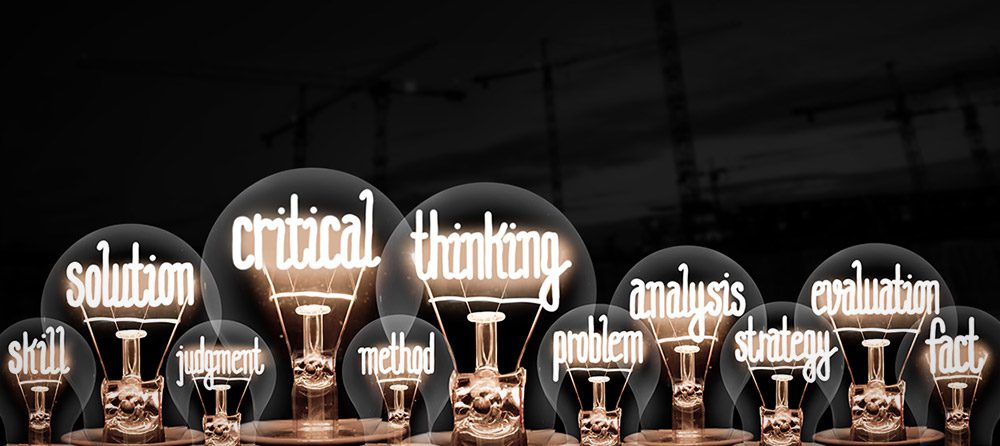“You don’t know what you don’t know”
Often when we interview candidates, the client for whom we are conducting the interview will ask us, “Does he recognize what he doesn’t know?” That is the client’s way of asking if the candidate has humble confidence, is coachable and trainable, and will look beyond conversation and offer verification to his words.
This might sound like a lot of content for one question, but staffing companies and projects in construction with the right people involve so much more than examining their “skill to build”. Just like on today’s news feeds, we have to be able to sort fact from opinion, and in business, the ability to do so is a revered trait that will make you stand out from others around you.
Having conversed with so many people in the construction industry over the last quarter-century, a philosophy I have put in place at Construction Connection with respect to this issue is the following:
If I hear a comment about a person or company once, it is an opinion. If I hear it twice from two different people with no reason to be commenting with the same opinion, then I am vigilant. If three or more people, over time, unrelated to one another, share information that matches, there is likely a factual component to that pattern or behavior. It’s important to verify information, as opposed to justifying information. That someone says they can do it does not mean they can, or can as well as the new employer expects.
An example of these principles in practice would be an employee of a general contracting company, an owner’s representative who worked with that general contracting firm on an unrelated project, and a project manager who did not work for the general contractor during the same time period of either of the aforementioned all reporting that the general contractor does not pay his sub-contractors, underbids projects, or is lacking in personal integrity, etc. This general contractor is most likely not only someone with whom we don’t want to do business; we will want to ask pertinent questions of all future candidates associated with that company. If they find the owner “walks on water”, then is it may be because they overlook, or are otherwise unexposed to, certain areas of the business, and would therefore be nescient of its shortcomings.
Why would this be important?
As individuals advance their careers in construction, the ability to apply critical thinking skills can make or break their opportunities for employment, the length of their employment, and their career growth. Construction follows a process. Processes involve a series of actions or steps taken in order to achieve a particular end. If you assume the process is being followed unwaveringly by the others on your team, or assume the steps in the process you are responsible for handling are markedly repetitive without verification, you may find your opinion challenged by those who think the opposite of you. In addition, those same people will typically lose faith in your opinion, as how it relates to the actual process will be debatable and unsubstantiated. In construction, that leads to time, cost and quality deficiencies, and ultimately exposing a company to unnecessary risk.
Below is a comparison chart showing the difference between fact and opinion. Recently in my office, we had a situation where I asked if something was installed. The person verifying it answered in the affirmative. When I asked to see it, it wasn’t there, despite this person having been told by the individual responsible for the installation the task was done. The credibility of both the person responsible and the person verifying was challenged. You may think that by telling your boss that the person told you they completed the task moves you out of the equation for that particular incident. However, multiple incidents like this could remove you from the equation permanently if your job involves holding others accountable. Your boss will find someone who has the inclination to want to see for themselves, especially if it is critical to the process or important to someone, they are servicing.
You may hate that people you work with are always checking what you do. If you are doing what you are supposed to do, then you shouldn’t be. They are doing what they are supposed to be doing also. Everyone doing what they say they will, when they say they will do it, while delivering the vision for the project or company, will create stability, opportunity and harmony.
At work at home and in society, don’t base your decisions on emotions or distant sources. The right answer is always verifiable. Evidence refutes arguments and solidifies trustworthiness for all parties involved. Your opinion could prove to be factually, disparagingly, wrong not just for you, but for many others as well.
BASIS FOR COMPARISON |
FACT |
OPINION |
|---|---|---|
| Meaning | Fact refers to something that can be verified or proved to be true | Opinion refers to a judgment or belief about something |
| Based on | Observation or research | Assumption or personal view |
| What is it? | Objective reality | Subjective statement |
| Verification | Possible | Not possible |
| Represents | Something really happened | A perception about something |
| Change | Universal | Differs from Person to person |
| Words | Shown with unbiased words | Expressed with biased words |
| Debatable | No | Yes |
| Influence | Facts have the power to influence others | Opinion does not have the power to influence others |
How are your critical thinking and verification skills?
Suzanne Breistol




